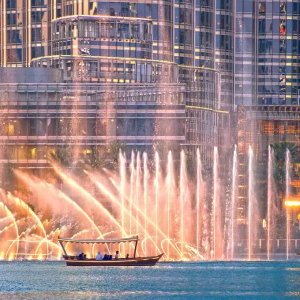The Hidden Struggle of Working 9 to 6 in a ‘Dream City’
When we think of a ‘dreams city,’ images of shining skylines, vibrant cafés, rooftop sunsets, and a fast-paced life filled with opportunities flood our minds. Social media paints a glossy picture of people sipping overpriced lattes, dressed in their best outfits, hustling between meetings and after-work events. From Dubai and Mumbai to London and New York, these cities are often romanticized as places where careers flourish and dreams are made.
But beneath this alluring exterior lies a quieter, heavier reality — the hidden struggle of working a 9 to 6 job in a city that never stops moving. It’s a battle that many silently fight, juggling expectations, isolation, rising expenses, and relentless pressure to ‘make it’ while appearing effortlessly successful.
Let’s step away from the filters and hashtags for a moment and talk about what it actually feels like to chase a career in a dream city.

The Pressure to Prove Yourself Every Day
One of the most suffocating aspects of working in a big city is the constant, invisible pressure to prove your worth. The competition is fierce. Every meeting feels like a performance. Every casual chat over coffee turns into a subtle comparison of achievements.
Your job isn’t just a job anymore — it becomes your identity. “What do you do?” is the first question people ask when they meet you, and your answer often determines how much respect or attention you’ll receive. If your role sounds impressive, people lean in. If it doesn’t, you watch them drift away to someone else.

This constant need to validate your presence, to justify your seat at the table, wears you down more than you realize. And while from the outside you may look like you’re thriving, inside you’re constantly asking yourself if you’re enough.

The Unspoken Loneliness of City Life
Ironically, you can feel the loneliest in the most crowded cities. You might be surrounded by people — in the metro, at work, in elevators, or standing in long queues at food courts — yet still feel isolated.
Everyone seems too busy chasing their own deadlines and dreams to pause for genuine connection. Friendships become harder to maintain, relationships are tested by hectic schedules, and family feels a world away. The city demands your time, your energy, and your attention, leaving little room for the people who matter.
It’s a strange kind of emptiness, sitting alone in your apartment after a long workday, scrolling through pictures of your hometown friends who seem to have simpler, warmer lives. You remind yourself why you moved here, but some nights, it’s hard to remember.
The Illusion of Glamour and Success
Social media culture has further complicated life in dream cities. Platforms are flooded with curated images of after-work dinners, rooftop parties, gym check-ins, and travel getaways. It creates an illusion that everyone is doing better than you — earning more, living better, and having more fun.
The truth, however, is that most people are just as exhausted and anxious. Behind those glossy posts are missed promotions, lonely weekends, mounting bills, and restless sleep. But no one talks about it openly because in these cities, vulnerability often feels like weakness.
Everyone wears a mask. You dress well, smile through bad days, and keep chasing that next raise, hoping it’ll finally make you feel like you belong.
Financial Stress in a City That Eats Money
One of the biggest hidden struggles of working in a dream city is managing finances. Everything costs more — rent, groceries, transportation, even a cup of coffee. Your paycheck, which once seemed generous on paper, starts vanishing in bills, EMIs, and expenses you never planned for.
You spend half your salary just to live, and the other half convincing yourself it’s worth it. Saving money feels impossible, investing in experiences seems irresponsible, and planning for the future feels like a luxury.
And yet, you keep going because the city seduces you with its promises. That one big opportunity, that one career break, or that one chance encounter could change everything — so you stay, hoping for a better tomorrow.

The Emotional Burnout No One Warns You About
Working 9 to 6 in a demanding city job doesn’t just exhaust your body, it drains your soul. Long commutes, difficult bosses, tight deadlines, and weekend assignments become routine. You wake up every morning, already tired, counting hours till the weekend.
What starts as ambition slowly morphs into autopilot survival. You stop celebrating small wins because they feel insignificant compared to the battles you fight daily. Mental health takes a backseat. Therapy feels unaffordable. Talking about stress seems risky in fear of being labeled ‘too emotional’ or ‘weak.’
So, you push through. Until one day, you can’t anymore.
The Fear of Starting Over
Perhaps the biggest reason people stay stuck in this cycle is the fear of starting over. After years of building a life in the city — collecting contacts, climbing the corporate ladder, and establishing a lifestyle — walking away feels terrifying.
You question if you’re too old to change careers, too invested to relocate, or too dependent on the city’s chaos to find peace elsewhere. It becomes a toxic relationship you don’t know how to leave. Even when you’re unhappy, you convince yourself it’s better than the uncertainty of starting fresh.
And so, the cycle continues.
Finding Strength in Small Moments
Despite all of this, people stay because there are moments that make it worthwhile. A promotion you fought hard for, a sunset on a bridge after a terrible day, a stranger’s unexpected kindness, or a night out with friends that reminds you why you came here in the first place.
These cities have a way of breaking you, but they also teach you resilience. You learn to find strength in small victories, to celebrate yourself in quiet ways, and to keep moving even when the road feels endless.
Every cup of chai after a 12-hour shift, every karaoke night, every ‘almost quit today’ story swapped over dinner becomes a badge of survival.
The New Definition of Success
The longer you live in a dream city, the more your idea of success evolves. It’s no longer about job titles or Instagram followers. It becomes about balance, sanity, and inner peace. You learn to prioritize friendships over networking events, mental health over deadlines, and experiences over material things.
You realize success can be leaving work on time, saying no to toxic bosses, taking weekend trips without guilt, or simply having dinner without checking emails.
It’s about finding your own rhythm in a city that keeps changing its beat.
Learning to Pause Without Quitting
Perhaps the bravest thing you can do in a dream city is to pause without feeling like a failure. To take breaks when you need them. To step back, reevaluate, and sometimes even switch paths entirely.
Many of the happiest people you’ll meet here aren’t the ones working the highest-paying jobs, but the ones who learned to live on their own terms. Who found hidden corners of the city where they felt alive. Who didn’t let the city consume them.
You owe yourself that.

Final Thoughts: It’s Okay to Struggle
If you’re working a 9 to 6 in a city you once called your ‘dream,’ and it doesn’t always feel like one — you’re not alone. Most people are fighting silent battles, questioning their choices, and learning lessons the hard way.
There’s no shame in admitting it’s tough. There’s no weakness in wanting more. And there’s incredible strength in choosing to stay, choosing to leave, or choosing to reinvent your life entirely.
Big cities will always be chaotic, overwhelming, and sometimes heartbreakingly lonely. But they’ll also surprise you with moments of unexpected beauty, courage, and kindness.
And in those moments, you’ll remember why you’re here. Why you chose this path. And why — despite everything — you’re still dreaming.
Because no matter how heavy the struggle, hope has a way of finding its way back.
Do follow UAE Stories on Instagram













